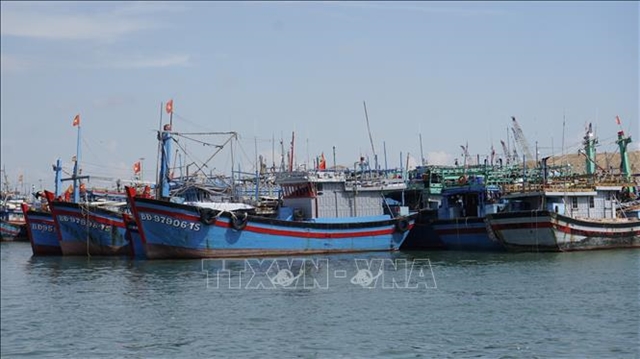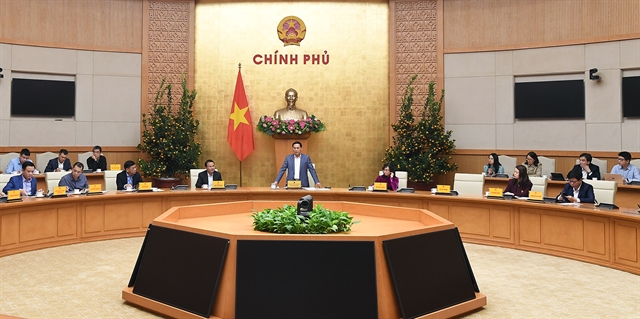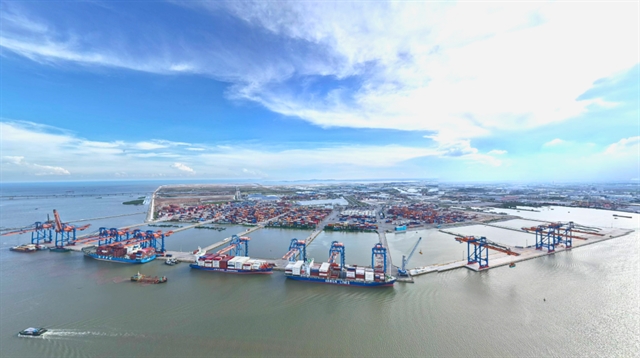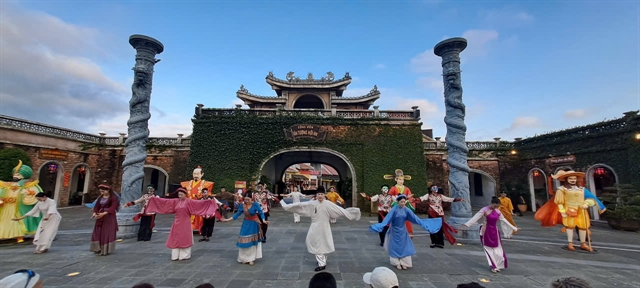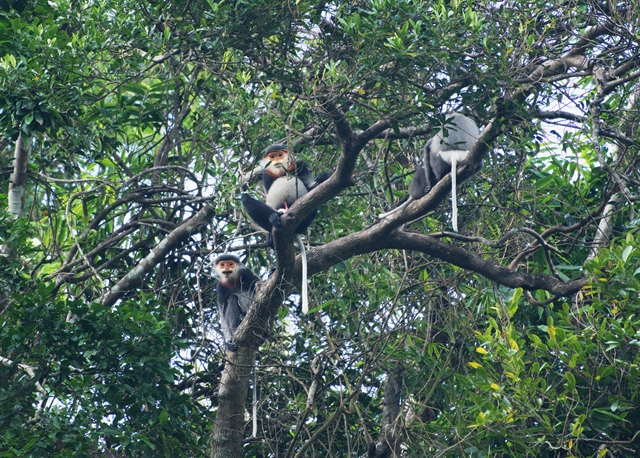 Environment
Environment
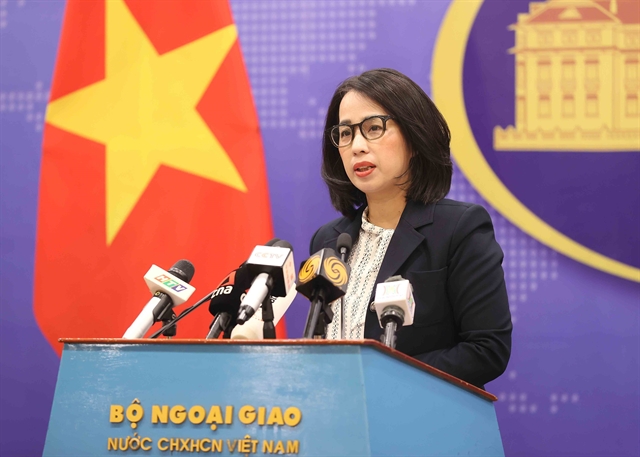
The fight against the illegal wildlife trade is a global issue, requiring a comprehensive collaborative mechanism and strong commitments to concrete action.
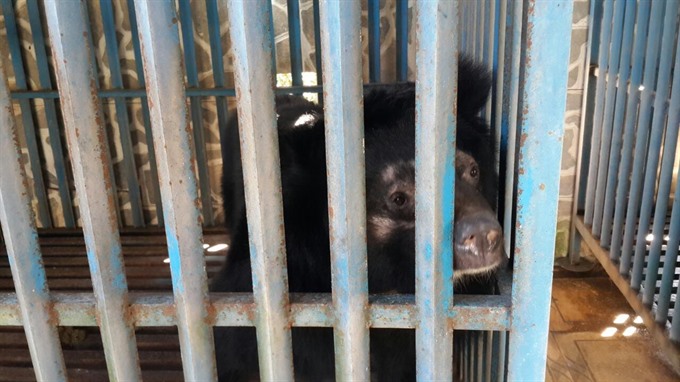 |
| A captive Asian black bear in the Central Highlands province of Gia Lai, one of four Asian black bears rescued by the Animals Asia Foundation on November 11. At a conference in Hà Nội yesterday, Vice President Đặng Thị Ngọc Thịnh urged the international community to combat illegal wildlife trade. — Photo courtesy of Animals Asia Foundation |
HÀ NỘI — The fight against the illegal wildlife trade is a global issue, requiring a comprehensive collaborative mechanism and strong commitments to concrete action.
“No single country could effectively combat it without liaison,” Vice President Đặng Thị Ngọc Thịnh said at the Hà Nội Conference on Illegal Wildlife Trade held yesterday.
Thịnh said illegal wildlife trade is no longer restricted within a country’s borderline. It has become global in scale, especially the illegal trade of elephant ivory, rhino horns, big cats and primates.
The illegal trade involves transnational and organised criminal syndicates, threatening the survival of many endangered species, causing social insecurity and undermining sustainable development for countries, she said.
Thịnh invited high-ranking participants from more than 40 countries to the two-day conference to discuss solutions to effectively protect wild animals and plants from illegal trade.
Speaking at the conference, Prince William of the United Kingdom, Duke of Cambridge, also urged countries to act more quickly, more concretely to save endangered species from extinction.
He said "We know that we aren’t moving fast enough to keep up with the crisis and rhinos, elephants, pangolins and lions are all still being killed in horrifying numbers.
"The shocking 30 per cent decline of elephant populations in Africa in the past seven years confirmed our worst fears", he said. "While we’ve made progress, the truth is we are still falling behind. A betting man would still bet on extinction."
Recommended solutions
Thịnh said the international community needs to implement multiple activities, including the harmonising of legal systems, eradicating markets for illegal wildlife trafficking and developing sustainable livelihoods for communities in nature reserves, she said.
Prince William presented participants with three questions and said the answers would help build a campaign of action to cope with the crisis: “Why does the ivory trade continue? Are we doing enough to confront the organised criminal groups behind illegal wildlife trade and bringing them to justice? Are we doing enough to work with businesses and civil societies to bring about change?”
Yury Fedotov, Executive Director of the UN Office on Drugs and Crime (UNODC) suggested that an important step would be for all countries to criminalise the possession of illegal wildlife. Penalties should serve as a deterrent, he said.
Other possible measures include establishing national inter-agency wildlife crime task forces; harmonising national legal frameworks to facilitate the exchange of evidence among government agencies in wildlife crime cases; increasing the use of forensic wildlife science; and strengthening the capacities of customs and border control officials to deal with seizures, he said.
Finally, the international community must come together to promote sustainable livelihoods for affected communities, in line with the Sustainable Development Goals, he said.
Vietnamese efforts
Last Saturday, the Vietnamese Government conducted the first ever destruction of over 2.2 tonnes of elephant ivory and over 70 kilos of rhino horns seized from wildlife traffickers.
The move was praised by the international community. Prince William said yesterday the destruction was a welcome sign of Việt Nam’s commitment.
Văn Ngọc Thịnh, World Wildlife Fund Việt Nam Country Director, said the destruction was a step in the right direction.
Việt Nam should use the conference to launch a concerted campaign against wildlife crime and other countries in the Greater Mekong region should follow suit – starting with a clear commitment to close their notorious illegal wildlife markets, Thịnh said.
A spokesperson of 13 organisations working in Việt Nam to protect wildlife and combat wildlife crime said the country has made many important commitments and agreements to end illegal wildlife trade. Now it’s time to turn these commitments into action and close down illegal wildlife markets and reduce consumer demand for these products, he said.
“The world’s attention is on Việt Nam, and this is a golden opportunity for Việt Nam to show that it’s serious about combating wildlife crime.”
Việt Nam is identified as a transshipment point for international wildlife trafficking rings from Africa, especially of ivory and rhino horns.
The two-day conference, hosted by the Government of Việt Nam, is scheduled to adopt a declaration that will include a roadmap to tangible and unified actions against illegal wildlife trade. — VNS

